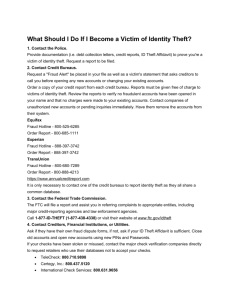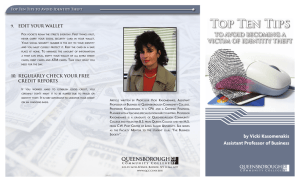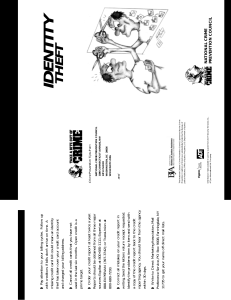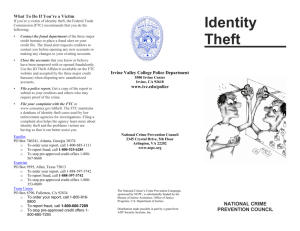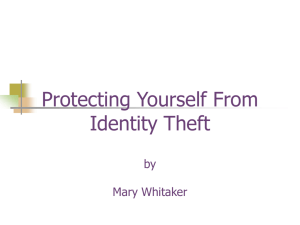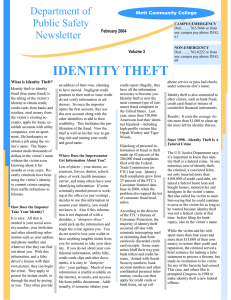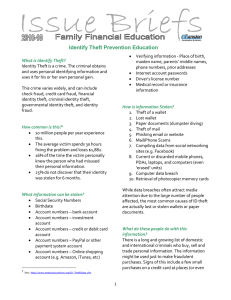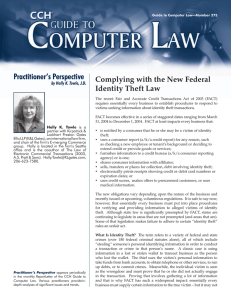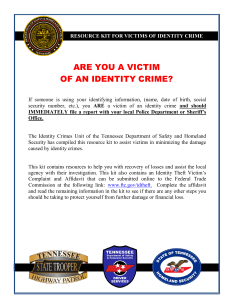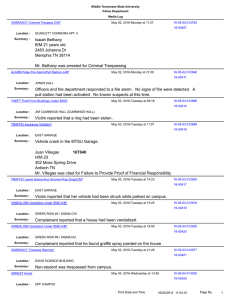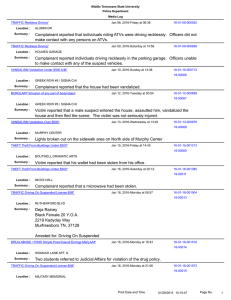HOW TO AVOID IDENTITY THEFT
advertisement
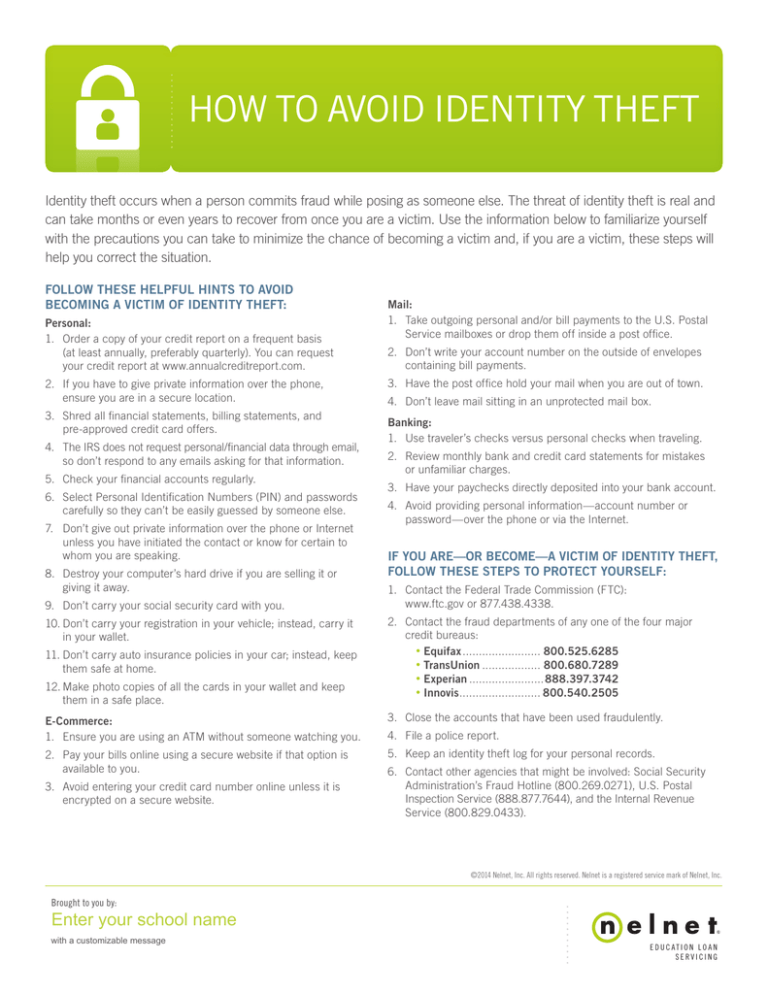
HOW TO AVOID IDENTITY THEFT Identity theft occurs when a person commits fraud while posing as someone else. The threat of identity theft is real and can take months or even years to recover from once you are a victim. Use the information below to familiarize yourself with the precautions you can take to minimize the chance of becoming a victim and, if you are a victim, these steps will help you correct the situation. FOLLOW THESE HELPFUL HINTS TO AVOID BECOMING A VICTIM OF IDENTITY THEFT: Personal: 1.Order a copy of your credit report on a frequent basis (at least annually, preferably quarterly). You can request your credit report at www.annualcreditreport.com. 2.If you have to give private information over the phone, ensure you are in a secure location. 3.Shred all financial statements, billing statements, and pre-approved credit card offers. 4.The IRS does not request personal/financial data through email, so don’t respond to any emails asking for that information. 5.Check your financial accounts regularly. 6.Select Personal Identification Numbers (PIN) and passwords carefully so they can’t be easily guessed by someone else. 7.Don’t give out private information over the phone or Internet unless you have initiated the contact or know for certain to whom you are speaking. 8.Destroy your computer’s hard drive if you are selling it or giving it away. 9.Don’t carry your social security card with you. 10.Don’t carry your registration in your vehicle; instead, carry it in your wallet. 11.Don’t carry auto insurance policies in your car; instead, keep them safe at home. 12.Make photo copies of all the cards in your wallet and keep them in a safe place. Mail: 1.Take outgoing personal and/or bill payments to the U.S. Postal Service mailboxes or drop them off inside a post office. 2.Don’t write your account number on the outside of envelopes containing bill payments. 3.Have the post office hold your mail when you are out of town. 4.Don’t leave mail sitting in an unprotected mail box. Banking: 1.Use traveler’s checks versus personal checks when traveling. 2.Review monthly bank and credit card statements for mistakes or unfamiliar charges. 3.Have your paychecks directly deposited into your bank account. 4.Avoid providing personal information—account number or password—over the phone or via the Internet. IF YOU ARE—OR BECOME—A VICTIM OF IDENTITY THEFT, FOLLOW THESE STEPS TO PROTECT YOURSELF: 1.Contact the Federal Trade Commission (FTC): www.ftc.gov or 877.438.4338. 2.Contact the fraud departments of any one of the four major credit bureaus: • Equifax......................... 800.525.6285 • TransUnion................... 800.680.7289 • Experian........................ 888.397.3742 • Innovis.......................... 800.540.2505 E-Commerce: 1.Ensure you are using an ATM without someone watching you. 3.Close the accounts that have been used fraudulently. 2.Pay your bills online using a secure website if that option is available to you. 5.Keep an identity theft log for your personal records. 3.Avoid entering your credit card number online unless it is encrypted on a secure website. 4.File a police report. 6.Contact other agencies that might be involved: Social Security Administration’s Fraud Hotline (800.269.0271), U.S. Postal Inspection Service (888.877.7644), and the Internal Revenue Service (800.829.0433). ©2014 Nelnet, Inc. All rights reserved. Nelnet is a registered service mark of Nelnet, Inc. Brought to you by: Enter your school name with a customizable message EDUCATION LOAN SERVICING
